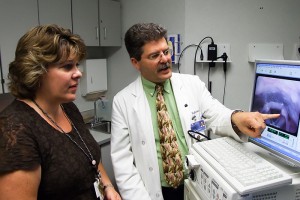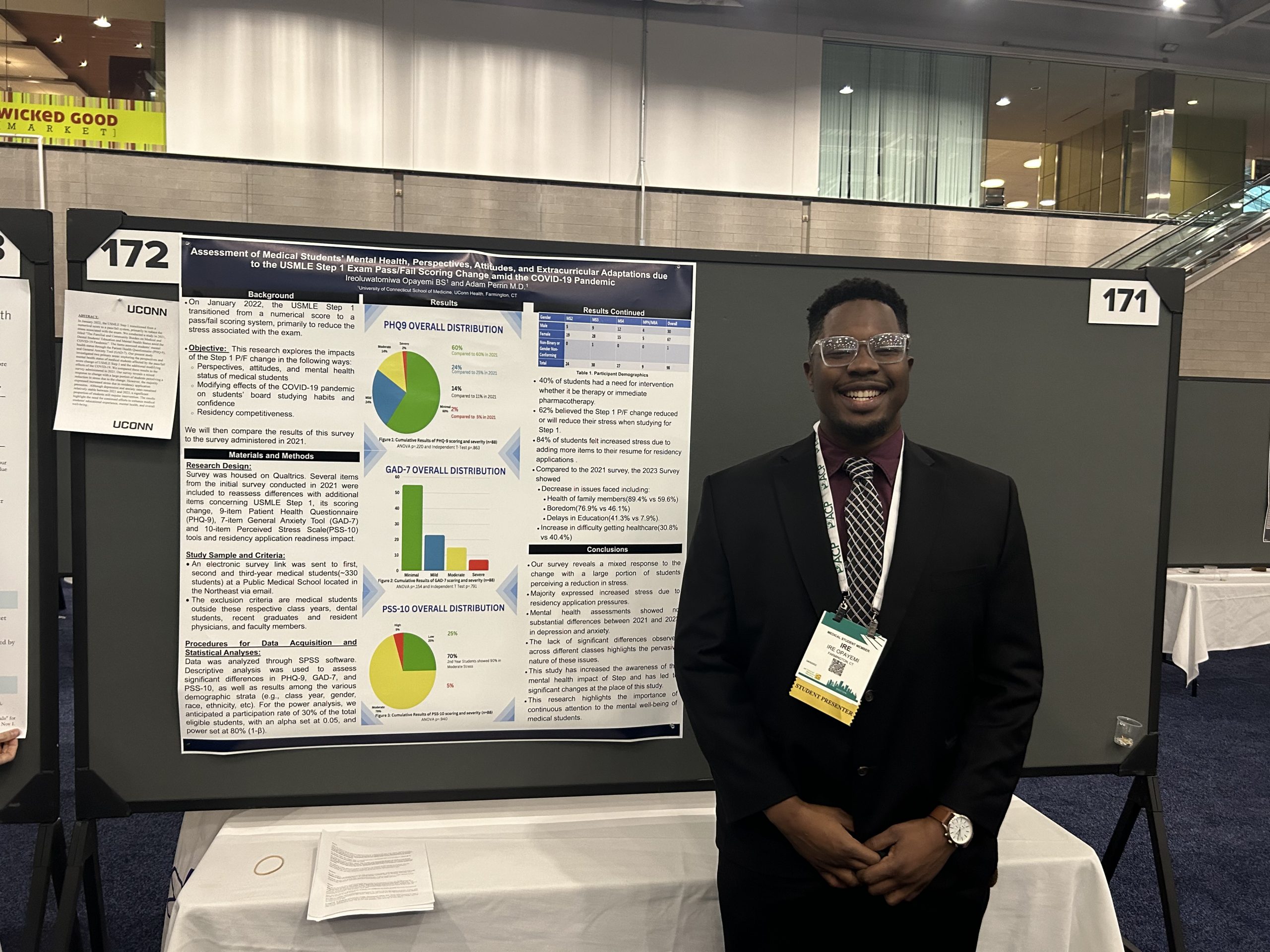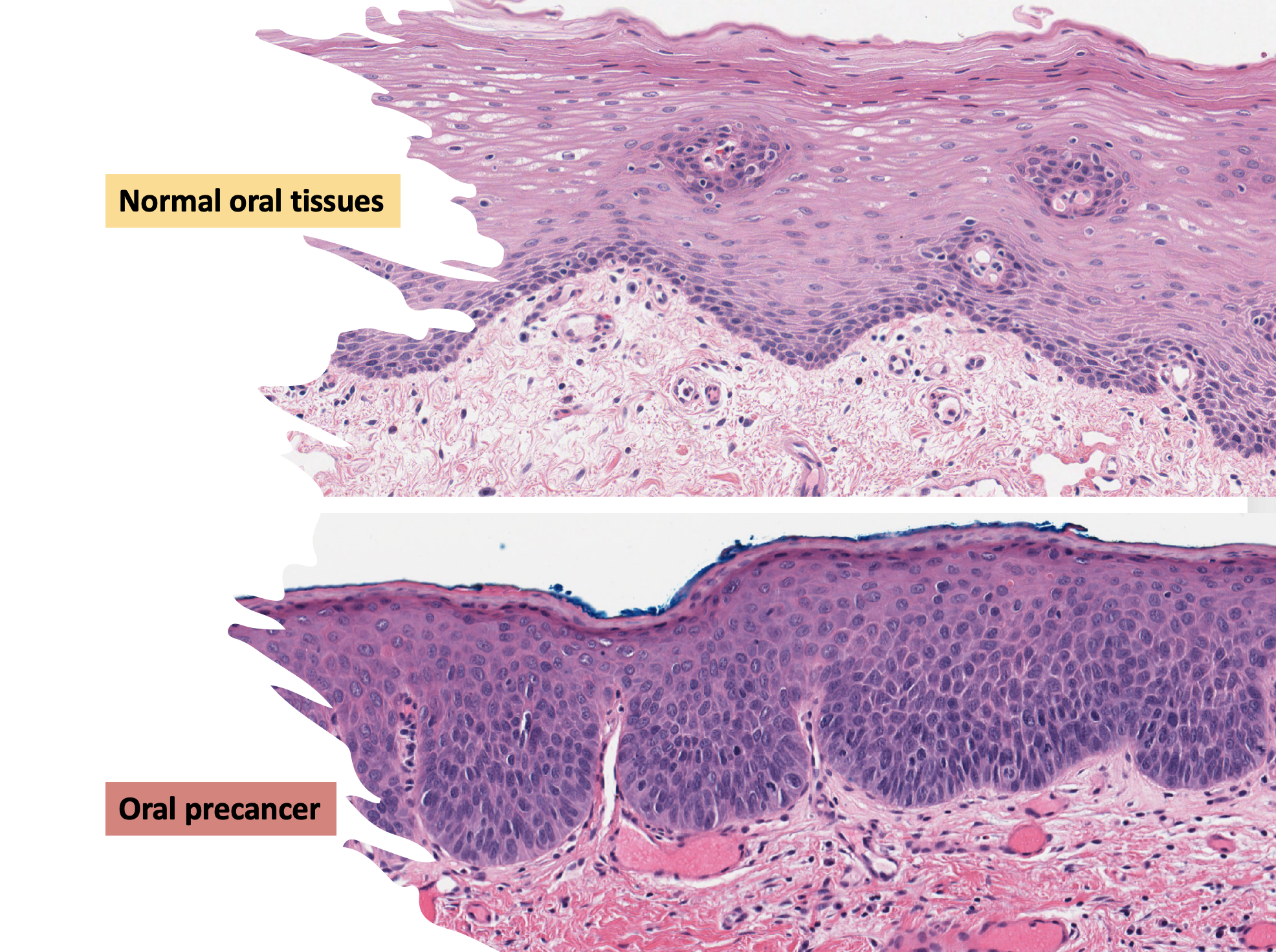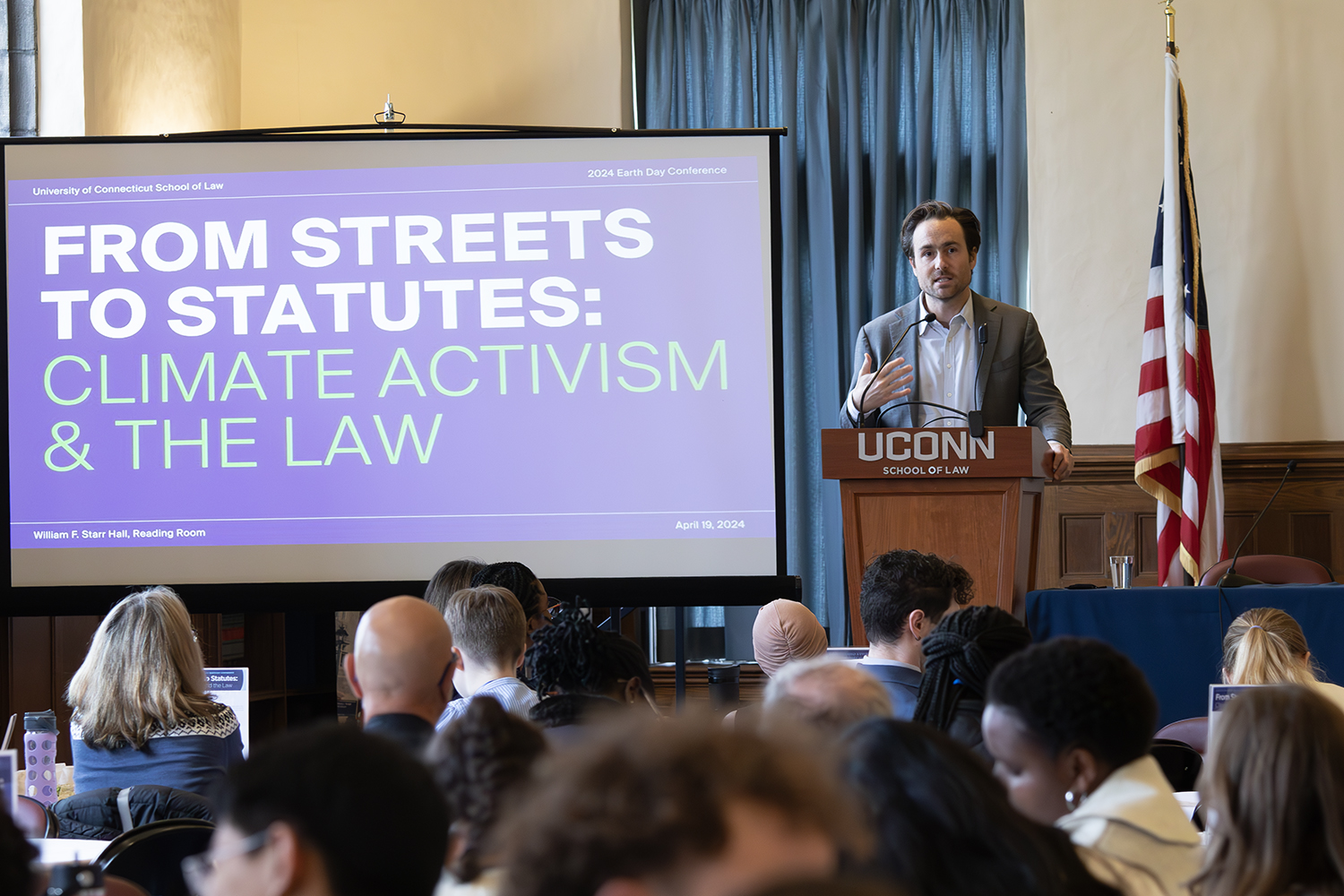
In recent weeks, popular singers Adele and Keith Urban have canceled tours in order to undergo surgery to correct problems associated with their voices. Their stories draw attention to the need to precisely diagnose and treat voice problems.
“Our voice is something we take for granted until problems arise, and for some people that could affect their ability to make a living,” says Dr. Denis Lafreniere, an otolaryngologist (ear, nose, and throat expert), specialist in head and neck surgery, and director of the Voice and Speech Clinic at the University of Connecticut Health Center.
The UConn clinic is one of a handful of comprehensive programs in New England that offers state-of-the-art technologies to diagnose and treat voice disorders, including speech therapy from voice-trained speech pathologists. For nearly 20 years, the clinic has provided care for local musicians and performers, including professionals with Hartford Stage, Connecticut Opera, and the Hartt School of Music, as well as people from many other professions who rely on their voices.

“Teachers, broadcasters, sales representatives, ministers, lawyers, receptionists, parents – the list is lengthy,” says Lafreniere.
Based on descriptions in the media of Adele’s and Urban’s problems, the UConn team could help them both. According to news reports, Adele’s surgery will repair hemorrhaged vocal cords and Urban will undergo surgery to remove a polyp on his vocal cords.
Here’s how the UConn program works. A speech pathologist analyzes the functional realm of each patient’s voice and Lafreniere focuses on contributing medical factors. Diagnoses and treatment plans are made after patients are evaluated by speech analysis computer software and/or videostroboscopy. Treatment plans may consist of speech therapy, surgery, or a combination of these approaches.
“The results can be dramatic. We’ve videotaped patients before and after surgery or treatment, and the improvements are astonishing,” Lafreniere says. “We’ve seen countless singers and artists who successfully recovered from voice problems.”
For more information about the Voice and Speech Clinic, call the Health Center at 800-535-6232 or visit http://uconnent.uchc.edu/patientcare/voice.html.
Follow the UConn Health Center on Facebook, Twitter and YouTube.



